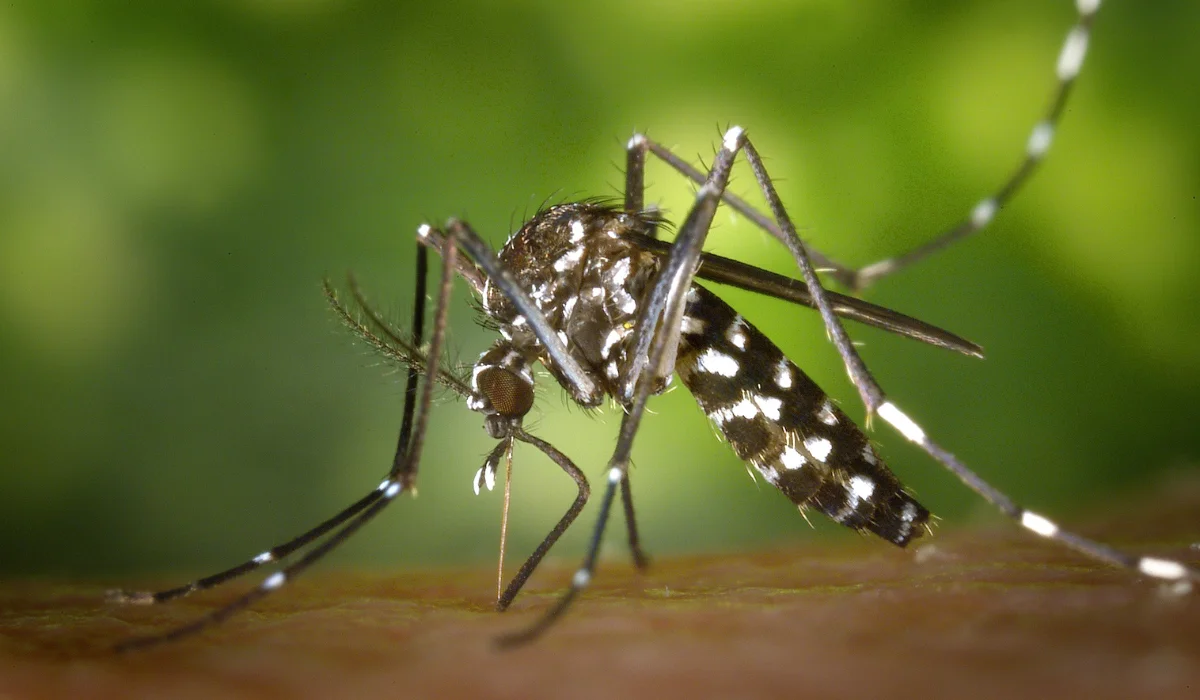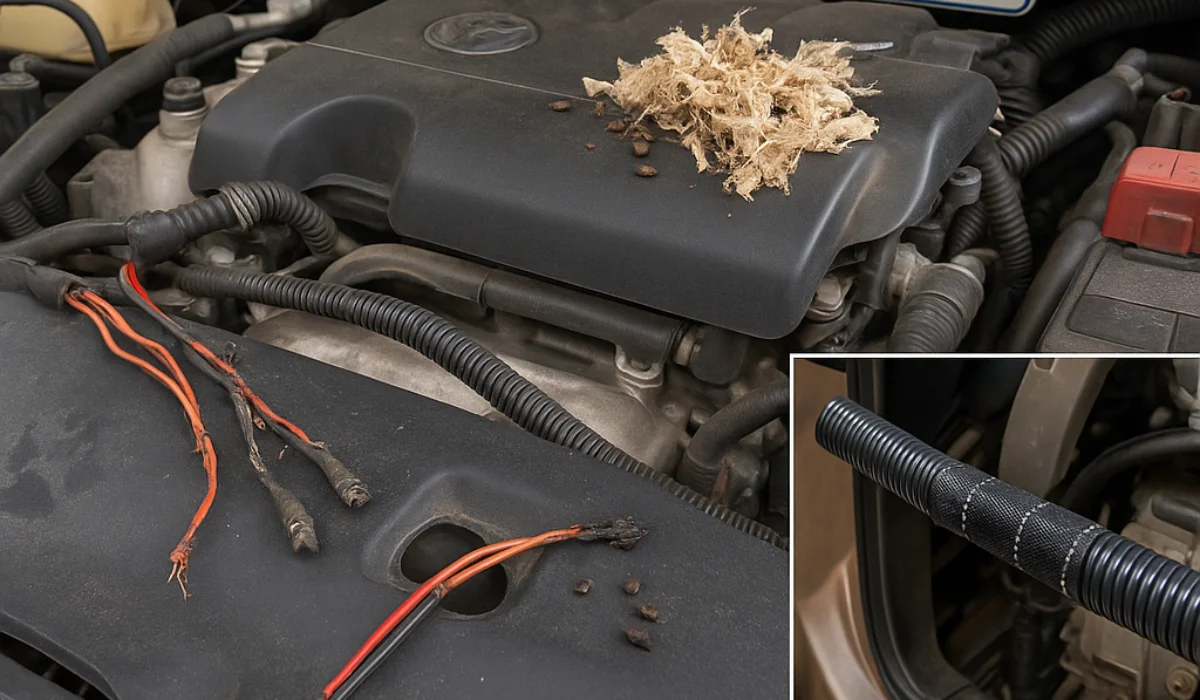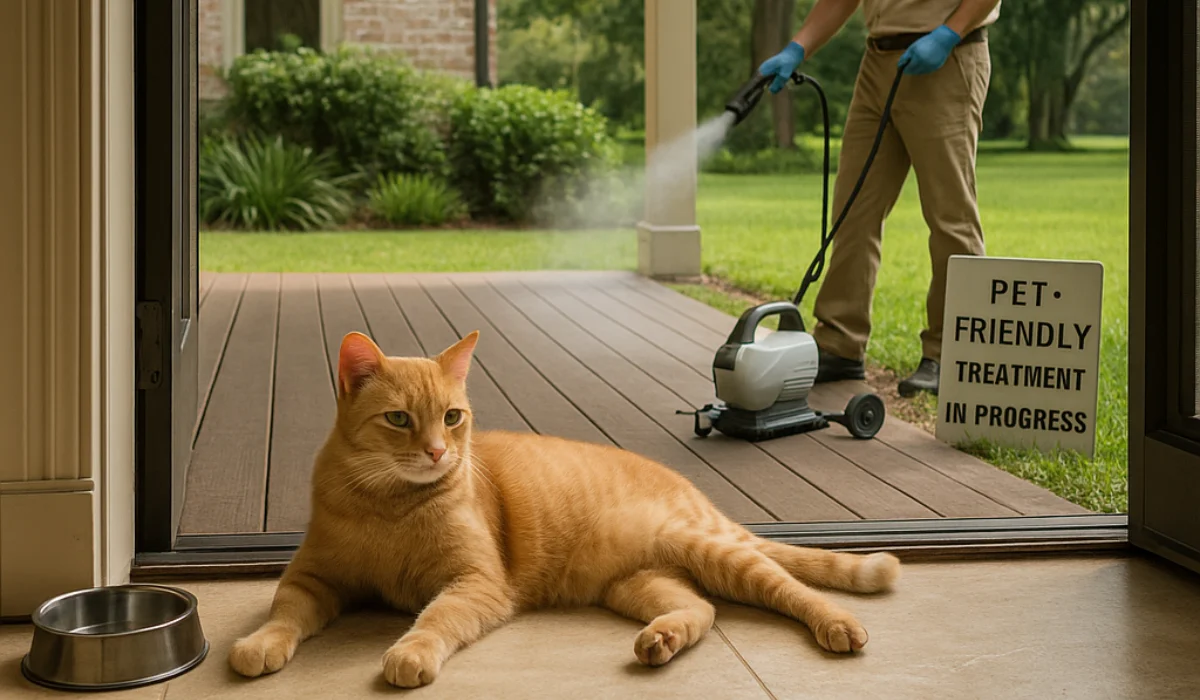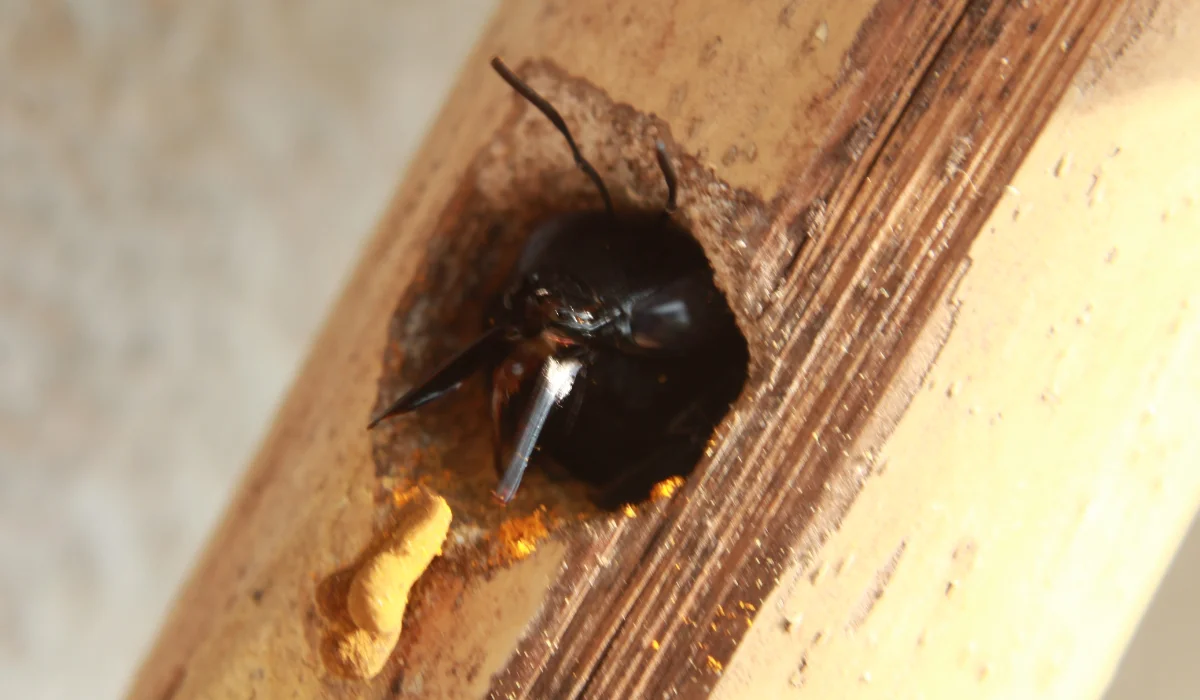Mosquito season in Louisiana always packs a punch, but this year it’s felt more intense than usual. If you’ve been swatting nonstop since early spring or avoiding your backyard altogether, you’re not alone.
Communities from Baton Rouge to New Orleans, including Livingston Parish, have experienced a sharp increase in mosquito populations, accompanied by a corresponding rise in mosquito-borne diseases, such as West Nile virus. So, what’s going on?
Let’s dig into the reasons why mosquitoes are awful in Louisiana this year, what that means for your health, and how you can protect your home and family.
Key Takeaways
• A warmer, wetter spring has led to increased standing water, which is ideal for mosquito breeding.
• West Nile virus cases have already been reported in areas like Baton Rouge and Livingston Parish.
• Health officials urge residents to reduce mosquito habitats and use EPA-registered repellent.
• LaJaunie’s Pest Control offers monthly mosquito control with added yard protection systems.
Unusually Warm and Wet Weather
Louisiana’s subtropical climate already favors mosquitoes, but this year brought extended periods of rain and mild winter temperatures. That combination left more standing water in bird baths, wheelbarrows, clogged gutters, and swimming pools, ideal conditions for mosquito larvae.
According to the Louisiana Department of Health (LDH) and the Centers for Disease Control and Prevention (CDC), even a small amount of stagnant water, such as a bottle cap, is sufficient for mosquitoes to breed. This year, we’ve seen more of those tiny pockets than usual.
Rising Mosquito Populations in Key Areas
From New Orleans to Baton Rouge and surrounding parishes, local mosquito control programs have been working overtime. In Livingston Parish, mosquito abatement teams have intensified their spraying efforts, but the sheer number of mosquitoes has made it more challenging to keep up.
LSU researchers note that when mosquito populations spike suddenly, the risk of disease transmission also rises. The first human case of West Nile virus in the state this year was reported weeks earlier than in the same period last year, raising concerns among health officials.
Increase in Mosquito-Borne Diseases
The LDH has confirmed an uptick in mosquito-borne diseases, such as West Nile virus (WNV), which can cause severe illnesses, including encephalitis and neuroinvasive disease. Common symptoms include fever, body aches, fatigue, and in rare cases, life-threatening complications.
The CDC emphasizes that WNV is transmitted only through the bites of infected mosquitoes. That means every bite you or your family gets is a potential risk. Health officials have already reported infections in both rural and urban areas, providing further evidence that no part of Louisiana is immune to the disease.
Why Local Prevention Matters
Preventing mosquito bites starts with reducing their breeding grounds. That means regularly emptying containers that hold water, such as gutters, bird baths, and children’s toys. Use a mosquito repellent containing DEET or other EPA-registered ingredients, and reapply as directed, especially after sweating or swimming.
When outdoors, especially during dusk and dawn, cover exposed skin with long sleeves and pants. If you’re using sunscreen, apply it first, then repellent.
In areas such as Baton Rouge, New Orleans, and Livingston Parish, where mosquito activity has been particularly high, local healthcare providers are urging extra caution.
What Local Experts Recommend
At LaJaunie’s Pest Control, we’ve seen firsthand how quickly mosquito infestations can take over a property. That’s why our mosquito control program focuses on three main things:
1. Population Reduction: Monthly treatments that kill active mosquitoes on contact.
2. Complete Yard Protection: Using backpack foggers and In2Care systems that stop mosquitoes from reproducing in standing water.
3. Identifying Problem Areas: Our technicians walk your property to identify areas that attract mosquitoes and demonstrate how to address them.
This approach helps protect you and your family while reducing the chances of mosquito-borne illnesses spreading.
Don’t Wait for a Bite to Take Action
If mosquitoes are making it hard to enjoy your backyard, or if you’re concerned about mosquito-borne illnesses like West Nile virus or Zika virus, it’s time to take prevention seriously. The Louisiana Department of Health and local mosquito control programs are doing their part, but homeowners also play a critical role.
Want to keep your property from becoming a mosquito magnet? LaJaunie’s Pest Control is here to help, whether you live in Baton Rouge, New Orleans, or a smaller community like Thibodaux or Denham Springs. Just give us a call and we will be there. With same-day service and guaranteed results, we make mosquito control easy.
FAQs
Why is Louisiana seeing more mosquitoes this year?
Warm temperatures and frequent rainfall have led to an increase in standing water, contributing to a significant expansion of mosquito populations. The lack of a brutal winter also allowed many mosquito eggs to survive.
What diseases do Louisiana mosquitoes carry?
Mosquitoes in Louisiana can transmit West Nile virus, Zika virus, and various forms of encephalitis. West Nile is the most common and can cause severe illness.
What repellent should I use to avoid mosquito bites?
Use an EPA-registered insect repellent containing DEET, picaridin, or oil of lemon eucalyptus. Always apply it after sunscreen and reapply as directed.
 By: LaJaunie's Pest Control
By: LaJaunie's Pest Control 



